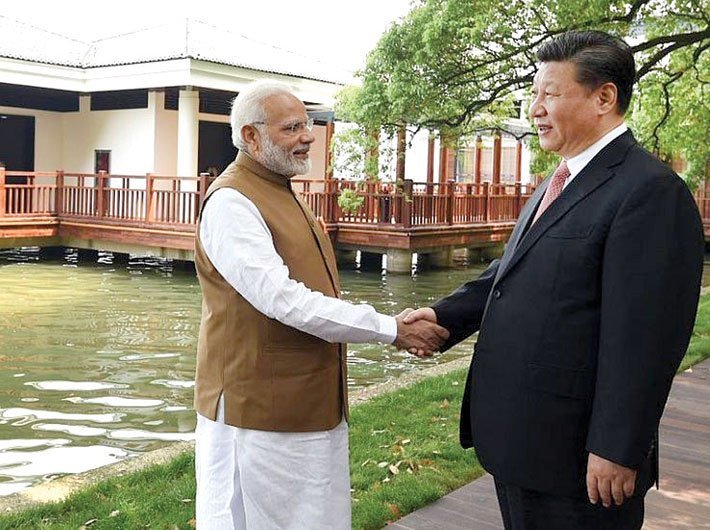For the rest of the world, it is not easy to understand China when it comes to politics or economics. Under pressure from the international community, it has accepted to open the country for a “comprehensive” probe into the origin of the deadly coronavirus. But it is not clear whether the Asian giant will work well up to the satisfaction of the probe team when it comes to investigating its role in suppressing facts about human-to-human transmission of Covid-19 for a considerable period of time.
The country will be probed for its role in the spread of the virus. To the surprise of international community, the deadly virus did not reach Shanghai and Beijing, but travelled thousands of kilometres to Italy, the UK, the US, Spain, and other parts of the world. The situation led to a precipitating economic crisis, coupled with rapacious activity of Chinese companies buying cheap stakes in firms in distress worldwide.
Even as this prompted countries like India to change their investment laws, there is a suspicion that China tricked the world as Covid-19 disease swept across the globe. Surprisingly, while stock markets across the US, Japan, Europe, India and other countries crashed, in China they held their ground.
Similarly, it didn’t put the entire country (except for Hubai province) under lockdown while more than 200 countries are still grappling with lockdowns. As all this was creating disquiet among international community members, they are further shocked by videos surfacing from China showing African migrants being evicted from apartments and being refused entry into hotels in cities across the country.
In particular, it triggered anger in Africa with Chinese ambassadors being hauled over by the media and foreign ministers of Nigeria, Ghana, Uganda and Kenya. They asked for explanations from the Chinese government about the incidents of misbehaviour against African migrants, most of whom were students who came to the Asian country for studies under scholarship programme.
In the history of Africa-China engagement, incidents of attacks and racial discrimination against African migrants presented a warped message about the fragility of relations between the two sides. This was visible at the recently held sitting of the World Health Organisation (WHO) in Geneva. Of the 120 countries which supported the European Union-led resolution for a probe into the origin of Covid-19, over a dozen belonged to the African continent. It showed that African countries, which used to fall over each other to win China’s investment, have lost their respect for the country.
But for China, the key objective is to become a superpower. It does not care for others when it comes to advancing its geopolitical ambitions from Asia to Pacific. It has suddenly upped an ante on three locations in the Ladakh sector and one sector in north Sikkim.
On May 9, armies of the two countries had resorted to fist-cuffing and also stone-pelting at each other in north Sikkim, resulting in injuries of personnel on both sides.
Before this incident, PLA soldiers and Indian soldiers came close to blows near Galwan Nala after Chinese troops objected to road construction by the Border Road Organisation on May 5-6 nights. Since then tension on LAC continues. It is said that Army chief General MM Naravane visited the 14 Corps headquarters in Leh and reviewed the situation with the top brass of the Northern Command.
Amid this tension, Nepal has added a new twist to the boundary tale. It has issued a revised map in which Lipulekh, Kalapani and Limpiyadhura have been shown as those belonging to the Himalayan country. New Delhi took strong exception to it stating, “Such artificial enlargement of territorial claims will not be accepted by India.” Nepal was also asked by New Delhi to “refrain from such unjustified cartographic assertion and respect India’s sovereignty and territorial integrity”.
Interestingly, there was no protest from Nepal when as part of the 1954 Panchsheel Agreement between India and China, Lipulekh was mentioned as one of the border passes for trade between the two countries. The Lipulekh pass has been used by Indians for the Kailash-Mansarovar pilgrimage since 1981 when the yatra restarted.
However, matters came to boil when India last week inaugurated an 80-km road linking Dharchula to Lipulekh for making the Kailash-Mansarovar pilgrimage more comfortable. Indian diplomats say Nepal could have resolved the issue by holding talks with New Delhi, instead of trying to create ripples in the two countries’ centuries-old historical and cultural relations. “About 98 percent of the India-Nepal boundary is already agreed upon by both countries. It is only for 2 percent, which includes Kalapani, that the technical committee could not come to a final decision,” Ranjit Rai, India’s former ambassador to Nepal, said.
While the ongoing intra-party fight in the ruling Nepal Communist Party and dwindling political weight of Prime Minister KP Oli are cited as reasons behind the current rancor between the two countries over the territorial issue, China is said to be adding spice to the Himalayan country’s anti-India rhetoric.
Murmurs from diplomatic grapevine suggest that while New Delhi is ready to resolve the boundary issue with Nepal, it is determined to stand up to China, which is trying to unsettle Indonesia, Vietnam and Taiwan also. Fear of the US, German, Japanese, South Korean companies getting out of China in the post Covid-19 situation and their plans to set up units in India, Vietnam or Indonesia are cited as the cause for Beijing to create an atmosphere of disturbance and instability in the region. Nevertheless, truth is that international politics is going to get murkier in days to come. China will become more aggressive and may give world peace a jolt if WHO investigation holds it responsible for the Covid-19 spread.

